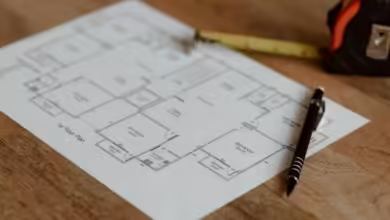Estate Planning 101: What Is an Estate Plan and When Should You Get One?

Table of Contents
Estate planning is often misunderstood as something only for the wealthy or elderly. However, this couldn’t be further from the truth. An estate plan is a crucial tool for anyone who wants to ensure that their assets, medical care, and legacy are handled according to their wishes, regardless of age or wealth. This comprehensive guide will delve into what an estate plan is, why it’s essential, and when you should consider getting one.
What Is an Estate Plan?
An estate plan is a collection of legal documents and strategies designed to manage and distribute your assets upon death or incapacitation. It ensures that your financial and personal wishes are honored, minimizing legal complications and emotional stress for your loved ones. An plan typically includes the following components:
1. Last Will and Testament
The last will and testament is the cornerstone of any estate plan. It outlines how your assets should be distributed after your death and appoints an executor to manage your estate. Without a will, the state decides how your assets are distributed, which may not align with your wishes.
2. Trusts
A trust is a legal entity that holds assets on behalf of beneficiaries. There are different types of trusts, such as revocable trusts, which can be altered during your lifetime, and irrevocable trusts, which cannot be changed once established. Trusts offer several benefits, including avoiding probate, reducing estate taxes, and providing privacy.
3. Power of Attorney
A power of attorney (POA) is a legal document that grants someone the authority to make decisions on your behalf if you become incapacitated. There are different types of POAs, such as general, limited, and durable, each serving a specific purpose.
4. Advance Healthcare Directive
An advance healthcare directive, also known as a living will, specifies your medical preferences if you become unable to communicate them yourself. It also allows you to designate a healthcare proxy to make medical decisions on your behalf.
5. Beneficiary Designations
Certain assets, like life insurance policies and retirement accounts, allow you to name beneficiaries directly. These assets bypass the will and go directly to the beneficiaries, making it essential to keep these designations up to date.
When Should You Get an Estate Plan?
Estate planning is not just for retirees or the wealthy. Life is unpredictable, and having an plan in place provides peace of mind that your wishes will be honored, no matter what happens. Here are key life stages when you should consider creating or updating your plan:
1. Young Adults
Once you reach adulthood, you should have at least a basic plan in place. This includes a will, power of attorney, and healthcare directive. While you may not have significant assets, these documents ensure your wishes are followed in case of an unexpected event.
2. Getting Married or Entering a Domestic Partnership
Marriage or a domestic partnership changes your legal status and impacts your estate. It’s essential to update your plan to reflect your new circumstances, such as naming your spouse as a beneficiary or healthcare proxy.
3. Becoming a Parent
If you have children, an plan is crucial. It allows you to name a guardian for your minor children and ensures that they are provided for financially. Trusts are particularly beneficial in this scenario, as they allow you to control when and how your children receive their inheritance.
4. Buying a Home or Acquiring Significant Assets
Major financial decisions, like purchasing a home or acquiring other valuable assets, necessitate an updated plan. These assets should be included in your will or trust to ensure they are distributed according to your wishes.
5. Retirement Planning
As you approach retirement, revisiting your plan becomes essential. You may need to update beneficiary designations, consider long-term care options, and ensure that your estate is structured to minimize taxes and maximize inheritance for your heirs.
6. After a Divorce or Major Life Event
Life events such as divorce, the birth of a grandchild, or the death of a loved one require you to review and update your estate plan. Neglecting to update your documents could lead to unintended consequences, such as an ex-spouse receiving assets.
The Benefits of Having an Estate Plan
Estate planning offers numerous benefits that extend beyond asset distribution. Here’s why having an estate plan is essential:
1. Control Over Asset Distribution
With an estate plan, you decide who gets what and when. You can ensure that your assets are distributed according to your wishes, whether it’s to family, friends, or charitable organizations.
2. Minimization of Estate Taxes
A well-crafted estate plan can significantly reduce estate taxes, ensuring that more of your assets go to your beneficiaries rather than the government.
3. Avoiding Probate
Probate is the legal process of validating a will and distributing assets. It can be time-consuming, costly, and public. Certain estate planning tools, like trusts, can help avoid probate, ensuring a quicker and more private transfer of assets.
4. Protecting Beneficiaries
If you have minor children, dependents with special needs, or financially irresponsible beneficiaries, an estate plan allows you to protect them by placing their inheritance in a trust with specific terms.
5. Planning for Incapacity
Estate planning isn’t just about what happens after you die; it’s also about protecting you during your lifetime. By having a power of attorney and advance healthcare directive in place, you ensure that your financial and medical decisions are made by someone you trust if you become incapacitated.
Conclusion
Creating an estate plan is one of the most important steps you can take to protect yourself, your loved ones, and your legacy. Whether you’re just starting out in life or nearing retirement, having an estate plan in place ensures that your wishes are honored and your assets are managed according to your desires. Don’t wait until it’s too late—start planning today.
External Resources:
- Nolo: Estate Planning Basics
Provides an in-depth overview of estate planning essentials, suitable for those just getting started. - Investopedia: Why Estate Planning Is Important
Explains the importance of estate planning and the key elements involved. - Forbes: How to Create an Estate Plan
A step-by-step guide to creating an effective estate plan.





